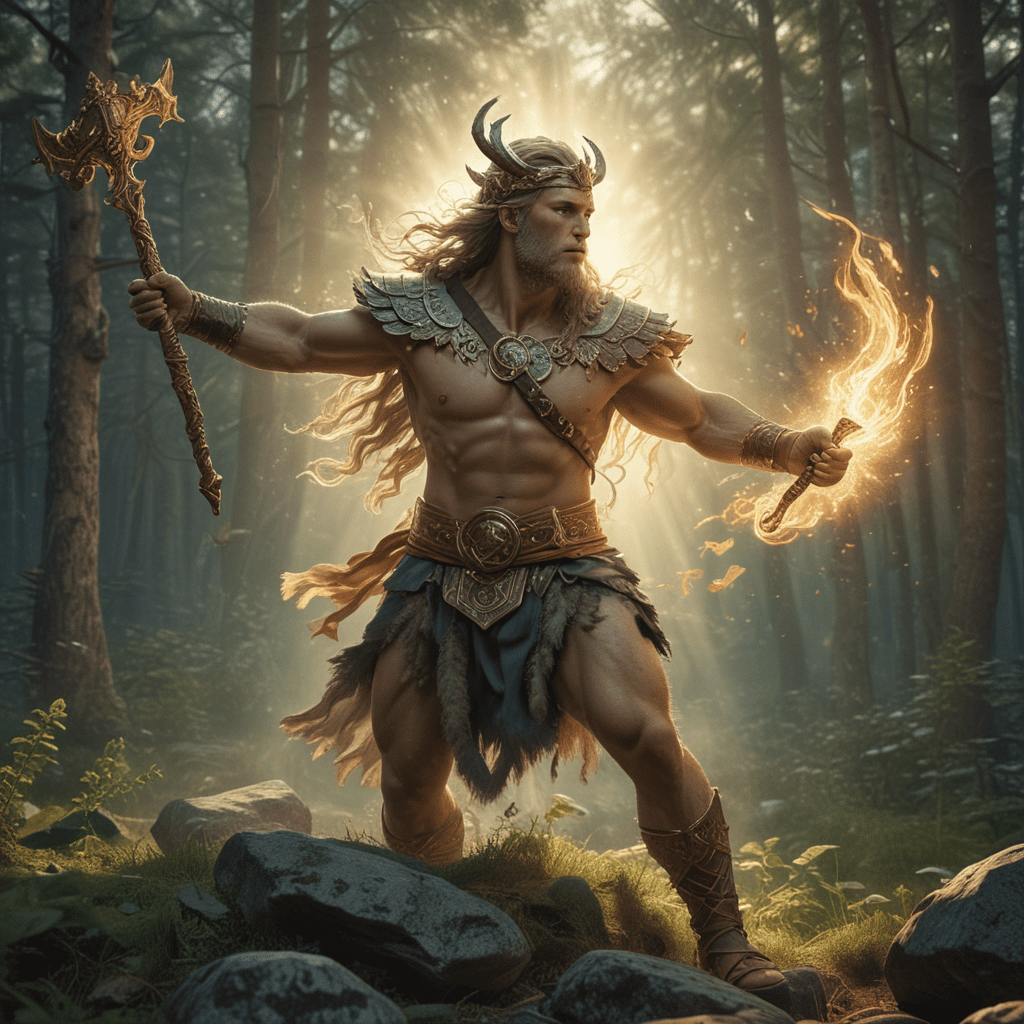I. Introduction: The Oral Tradition of Finnish Mythology
The rich tapestry of Finnish mythology is woven with captivating stories and captivating characters, passed down through generations through the oral tradition. These tales, steeped in the vibrant landscapes and ancient beliefs of Finland, hold a profound reverence for the power of words.
II. The Importance of Words in Finnish Myth
Words were not merely tools for communication in Finnish mythology; they were believed to possess an inherent power to shape reality. The spoken word had the ability to invoke, heal, and even curse. The careful choice and arrangement of words were essential for a potent speech or spell.
III. The Power of Naming in Finnish Mythology
Names held immense significance in Finnish myths. The name of a person, place, or object was believed to be inextricably linked to its essence. By knowing the true name of something, one gained a degree of control over it. This concept played a crucial role in shaping the relationships between gods, humans, and the natural world.
IV. The Use of Spells and Incantations
Spells and incantations were central to Finnish mythology. They were believed to possess the ability to alter the course of events, heal the sick, and protect against harm. The proper recitation of a spell required precise pronunciation and a deep understanding of its hidden meanings.
V. The Significance of Kenningar and Wordplay
Kenningar, a form of poetic metaphor, were widely employed in Finnish mythology. They allowed poets and storytellers to express complex ideas and emotions through vivid imagery and intricate wordplay. Kenningar not only added beauty to the tales but also revealed the underlying connections between different concepts.
VI. The Role of the Word in Divination and Prophecy
Words played a vital role in divination and prophecy in Finnish mythology. Shamans and seers would consult the spirits of the dead or visit sacred places to gain insights into the future. The words spoken during these rituals, often in the form of riddles or prophecies, were believed to hold great significance.
VII. The Connection Between Words and the Supernatural
In Finnish mythology, words were closely associated with the supernatural realm. Gods, spirits, and other supernatural beings were believed to communicate through dreams, visions, and other forms of divine speech. The ability to understand and interpret these communications was essential for human interaction with the supernatural world.
VIII. The Ethical Implications of Word Power
The power of words in Finnish mythology also carried ethical implications. Words could be used for both good and evil, and the misuse of language was believed to have serious consequences. This concept underscores the importance of truthfulness, eloquence, and respect in speech.
IX. The Modern Legacy of Word Power in Finnish Culture
The legacy of word power in Finnish mythology continues to shape Finnish culture in various ways. The Kalevala, Finland's national epic, celebrates the power of words and storytelling. Finnish proverbs and idioms often reflect the ancient beliefs about the significance of words. Additionally, the Finnish language itself is rich in poetic devices and idioms, showcasing the enduring influence of wordcraft.
X. Conclusion: The Enduring Influence of Words in Finnish Mythology
Through the oral tradition, the rich tapestry of Finnish mythology has preserved the profound reverence for the power of words. From the potency of naming to the significance of spells, incantations, and divination, words were believed to shape reality and connect humans to the supernatural realm. The ethical implications of word power also emphasized the importance of responsible speech. The enduring influence of word power in Finnish culture, from the Kalevala to modern-day language, reflects the timeless fascination with the magic inherent in words.
FAQ
Q: Why were words so important in Finnish mythology?
A: Words were believed to possess an inherent power to shape reality, invoke, heal, and even curse. The careful choice and arrangement of words were essential for a potent speech or spell.
Q: What was the significance of naming in Finnish mythology?
A: Names were believed to be inextricably linked to the essence of a person, place, or object. By knowing the true name of something, one gained a degree of control over it.
Q: How were words used in divination and prophecy?
A: Shamans and seers would consult the spirits of the dead or visit sacred places to gain insights into the future. The words spoken during these rituals, often in the form of riddles or prophecies, were believed to hold great significance.



